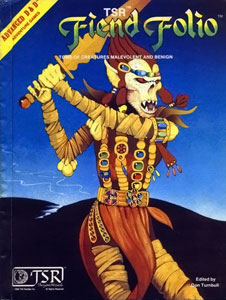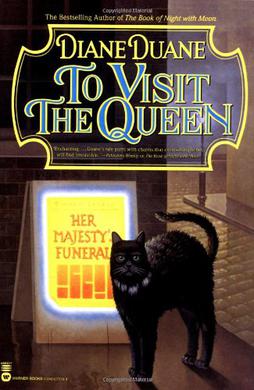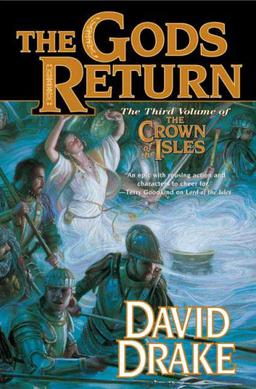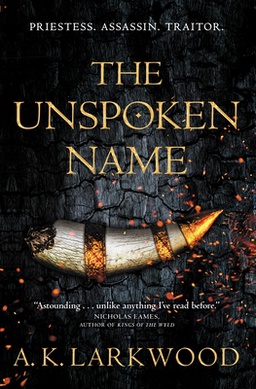Related Research Articles

In fantasy fiction, a lich is a type of undead creature.

Broken Angels (2003) is a military science fiction novel by British writer Richard Morgan. It is the sequel to Altered Carbon, and is followed by Woken Furies.

Fiend Folio is the name of three separate products published for successive editions of the fantasy role-playing game Dungeons & Dragons (D&D). All three are collections of monsters.

Heroes of Might and Magic III: The Restoration of Erathia is a turn-based strategy game developed by Jon Van Caneghem through New World Computing originally released for Microsoft Windows by The 3DO Company in 1999. Its ports to several computer and console systems followed in 1999–2000. It is the third installment of the Heroes of Might and Magic series.
William Bradley Strickland is an American writer known primarily for fantasy and science fiction. His speculative fiction is published under the name Brad Strickland except for one novel written as Will Bradley. By a wide margin his work most widely held in WorldCat participating libraries is The Sign of the Sinister Sorcerer, which concluded the Lewis Barnavelt series created by John Bellairs (1938–1991).

Martha Wells is an American writer of speculative fiction. She has published a number of fantasy novels, young adult novels, media tie-ins, short stories, and nonfiction essays on fantasy and science fiction subjects. Her novels have been translated into twelve languages. Wells has won four Hugo Awards, two Nebula Awards and three Locus Awards for her science fiction series The Murderbot Diaries. She is also known for her fantasy series Ile-Rien and The Books of the Raksura. Wells is praised for the complex, realistically detailed societies she creates; this is often credited to her academic background in anthropology.
The wizard is one of the standard character class in the Dungeons & Dragons fantasy role-playing game. A wizard uses arcane magic, and is considered less effective in melee combat than other classes.
Elemental Masters is a fantasy series by American writer Mercedes Lackey, taking place on an alternate Earth where magic exists. The series largely focuses on Elemental Masters, people who have magical control over air, water, fire, or earth. Each elemental master has power over elementals, as well. Each book in the series is loosely based on a fairy tale.

The Flying Sorcerers is a humorous 1971 science fiction novel by American writers David Gerrold and Larry Niven. It was originally serialized in 1970 as The Misspelled Magishun in If magazine.
The lich is an undead creature found in the Dungeons & Dragons (D&D) fantasy role-playing game. Liches are spellcasters who seek to defy death by magical means.
This is a list of characters from the fictional nation of Ile-Rien, the setting of five of Martha Wells' fantasy novels.

To Visit the Queen (1998) is a fantasy steampunk novel by Diane Duane. Its plot deals with the invention of nuclear weapons in Victorian Britain, thanks to the evil intervention of the Lone Power and the efforts of Duane's wizard feline adventurers to save the day.

Dark Sun is an original Dungeons & Dragons (D&D) campaign setting set in the fictional, post-apocalyptic desert world of Athas. Dark Sun featured an innovative metaplot, influential art work, dark themes, and a genre-bending take on traditional fantasy role-playing. The product line began with the original Dark Sun Boxed Set released for D&D's 2nd edition in 1991, originally ran until 1996, and was one of TSR's most successful releases.

The Gods Return is the ninth and final book in the Lord of the Isles Saga by David Drake. It was published in 2008 by Tor Books; the third books of the Crown of the Isles. It follows the stories of Garric, Sharina, Cashel and Ilna in the newly changed world that was once the Isles and is now a great continent: the Land.

The Lost Hero is an American fantasy-adventure novel written by Rick Riordan, based on Greek and Roman mythology. It was published on October 12, 2010, and is the first book in The Heroes of Olympus series, a sequel to the Percy Jackson & the Olympians series. It is preceded by The Last Olympian of Percy Jackson & the Olympians and followed by The Son of Neptune. The novel has since been translated into many languages and released as a hardcover, e-book, audiobook, and paperback.
The Powder Magetrilogy is a series of epic fantasy novels written by American author Brian McClellan. It consists of the novels Promise of Blood (2013), The Crimson Campaign (2014) and The Autumn Republic (2015). In 2014, Promise of Blood received the Morningstar Award for Best Fantasy Newcomer. Several short stories and novellas set in the world of The Powder Mage trilogy have been published, as well as an additional trilogy called Gods of Blood and Powder.

The Death of the Necromancer is a 1998 fantasy novel by Martha Wells. It was first published by Eos/HarperCollins.

The Unspoken Name is a 2020 fantasy novel, the debut novel by A.K. Larkwood. Csorwe, an Oshaaru, is pledged to be sacrificed to the Unspoken God before she is rescued by the wizard Sethennai. She becomes his assassin and spy, dedicating her life to the search for a missing artifact. An unexpected encounter with a young mage calls Csorwe's loyalties into question. The Unspoken Name is the first in the planned Serpent Gates series.

Punch Me Up to the Gods is a memoir, written by Brian Broome and published May 18, 2021 by Houghton Mifflin Harcourt. The book won the Kirkus Prize for Nonfiction (2021), as well as the Lambda Literary Award for Gay Memoir or Biography (2022).
References
- ↑ Wells, Martha. "Worlds of Martha Wells". MarthaWells.com. Retrieved 2009-02-14.
- 1 2 3 4 Wells, Martha. "Interviews and Questions". Marthawells.com. Archived from the original on 2009-03-29. Retrieved 2009-02-14.
- ↑ Reviews of The Element of Fire:
- "The Element of Fire". Publishers Weekly. 28 June 1993.
- Cushman, Carolyn (July 1993). "Review: The Element of Fire by Martha Wells". Locus . Vol. 31, no. 1. p. 32.
- ↑ Reviews of The Death of the Necromancer:
- "Death of the Necromancer". Kirkus Reviews. 1 May 1998.
- ↑ Reviews of The Wizard Hunters:
- "The Wizard Hunters". Kirkus Reviews. 1 March 2003.
- "The Wizard Hunters: Book One of the Fall of Ile-Rien". Publishers Weekly. 17 March 2003.
- ↑ Reviews of The Ships of Air:
- "The Ships of Air". Kirkus Reviews. 15 April 2004.
- "The Ships of Air: Book Two of the Fall of Ile-Rien". Publishers Weekly. 28 June 2004.
- ↑ Reviews of The Gate of Gods:
- "The Gate of Gods". Kirkus Reviews. 15 September 2005.
- "The Gate of Gods: Book Three of the Fall of Ile-Rien". Publishers Weekly. 26 September 2005.